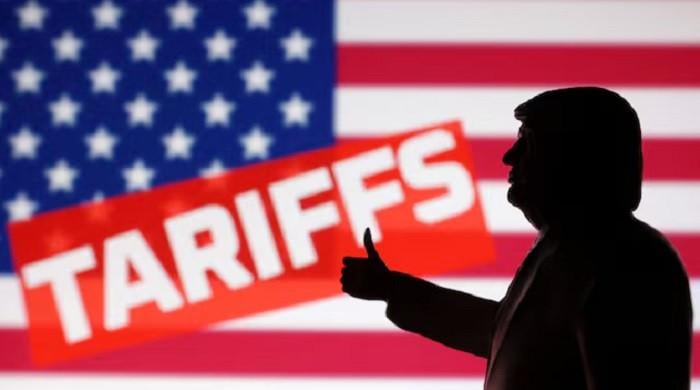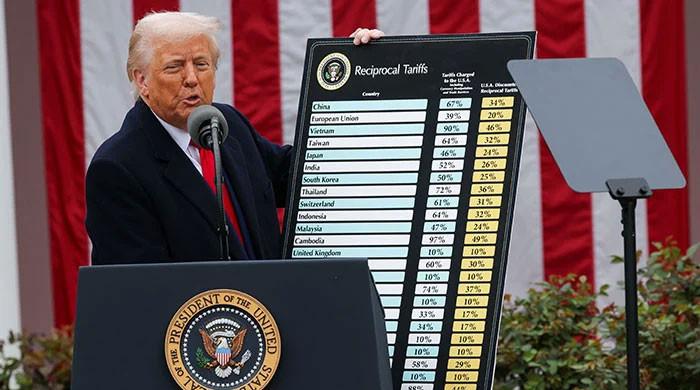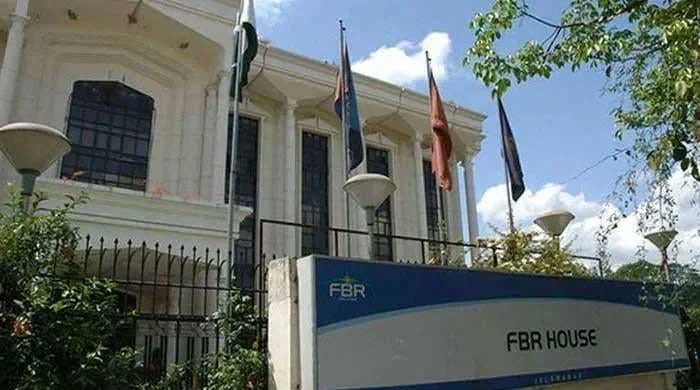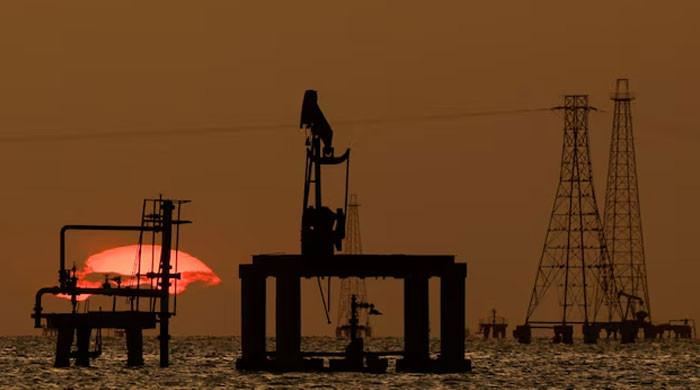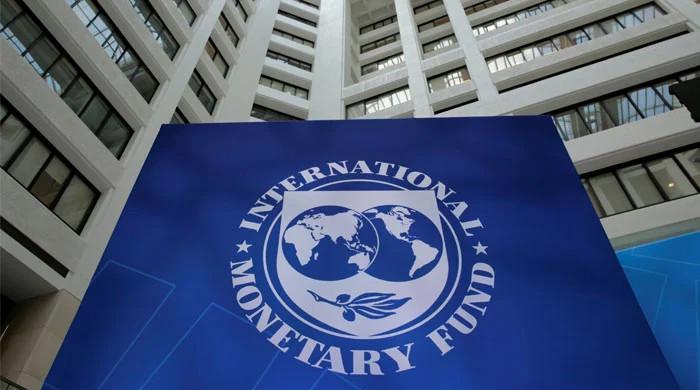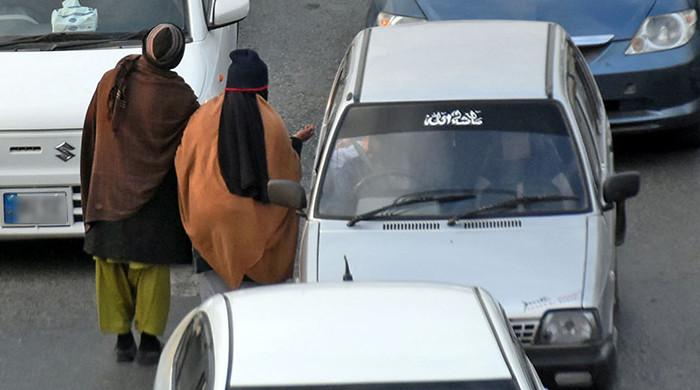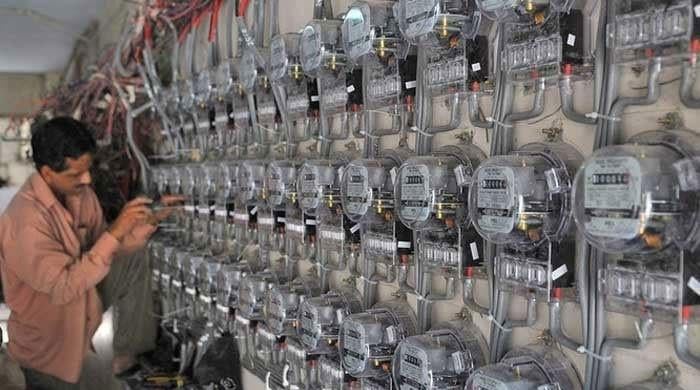Pakistan’s ‘Plan-B’ in works, Ishaq Dar says, as IMF loan remains locked
“Pakistan, as I have said, will not default," FinMin Dar notes, vowing that country is on road to progress
June 10, 2023
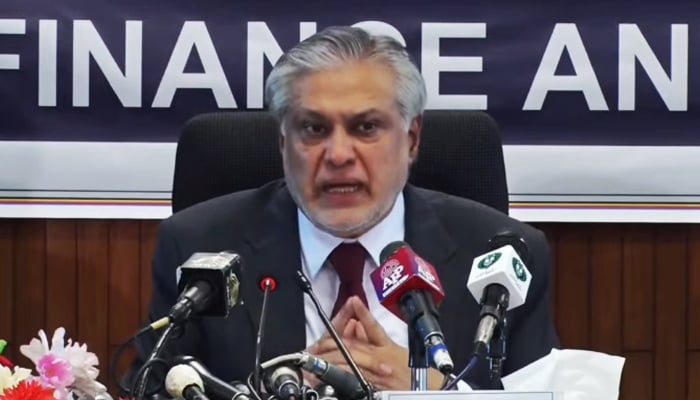
Finance Minister Ishaq Dar Saturday admitted that his government was working on a “Plan-B” if the International Monetary Fund (IMF) does not release the pending loan for Pakistan — which is much-needed as the nation faces a possible default on external payments.
“Plan-B is always there: self-reliance and standing on your own feet [...] we cannot talk about it much in public. But, Insha’Allah, Pakistan will not default,” the finance minister said during his post-budget press conference.
The cash-strapped country, with reserves to barely meet a month's worth of imports, is undertaking steps to secure a $1.1 billion loan, part of a $6.5 billion IMF bailout package, which has been delayed since November, with more than 100 days gone since the last staff-level mission to Pakistan, the longest such delay since at least 2008.
In light of an absence of a bailout programme, securing external financing will be an uphill task for Pakistan as bilateral loans were also conditioned to the IMF’s loan, and experts fear that the nation might not be able to meet its external debt repayments.
“Pakistan, as I have said, will not default. Those who keep insisting that Pakistan will default are responsible for this mess. They are basically behind these issues. They are partners in this crime,” he said in an apparent reference to former finance minister Miftah Ismail.
The cash-strapped government unveiled a Rs14.5 trillion (around $50.5 billion) budget Friday, with over half set aside to service 7.3 trillion rupees of debt.
A balance-of-payments crisis has struck Pakistan’s economy as it attempts to service crippling external debt, while months of political chaos have scared off potential foreign investment.
About 950 billion rupees was earmarked for vote-winning development projects ahead of a general election later this year, while other populist measures include civil service pay rises of up to 35%, and a 17.5% increase for state pensions.
Pakistan is eyeing a gross domestic product (GDP) growth of 3.5%, expecting inflation at 21%, and targeting a fiscal deficit of 6.54% of GDP for the 2023-24 fiscal year, slightly below the current year's revised estimate of 7%.
Moreover, the finance minister said that if the budget targets are met, the country's economy will grow.
“If there is growth, then the wheel of the country will turn smoothly,” the minister said.
FBR's two committees
During the presser, the finance minister announced that two committees will be set up in the Federal Board of Revenue (FBR) — one related to business and the other to address technical issues and anomalies.
He said, he will give approval for the committees to the FBR chairman soon and they will be effective from Monday.
He added that these committees will work until the day before the parliament ratifies the budget.
Yesterday, the finance minister shared that FBR expects to collect Rs1,618 billion from non-tax revenue, and federal tax collection will be Rs4,689, while total expenditure is estimated at Rs11,090 billion.
'No reason for delay in election'
When asked about JUI-F chief Maulana Fazlur Rehman’s statement about the general election in the country that is due later this year, Dar said that the government has allocated Rs42 billion for the elections and he doesn’t see any reason for delay in this regard.
“We have allocated funds and there should be no delay in elections. The federal cabinet has done its part which also has JUI-F ministers,” Dar said, rubbishing such reports.
"Our allies have the right to speak. They did not say anything unconstitutional," he said, adding that if leaders of two parties had said so, the matter will be discussed.
However, he said, delaying the election is not unconstitutional and there is scope for it in the constitution.
Federal Deficit
Moving on to the new federal budget, Dar said that the federal deficit came to Rs7,573 billion (-7.2%), and after the provincial surplus, it was Rs6,932 billion (-6.54%).
Overall, the balance has been kept at Rs380 billion, which is 0.4% of the GDP, the finance minister said, adding that the nominal GDP number is Rs105 trillion for the next fiscal year.
Development under PSDP
FinMin Dar said the government has set aside a budget for health, education, the social sector, and transport under the Public Sector Development Program (PSDP) — an important public intervention to spur private investment by developing human capital and improving the country's infrastructure.
He mentioned that the development budget of provinces is Rs1,559 billion, while the federal government’s development budget is Rs1,150 billion — Rs950 billion from the government and Rs200 billion from PPP mode.
Defending his government’s move, Dar said: “I believe that if we implement this PSDP in letter and spirit and with transparency, we will be able to easily achieve the 3.5% growth.”
Agricultural revolution
The finance minister further shared the government's plans to boost the agriculture sector.
He said that the government — aiming to bring an agricultural revolution in the country — has allocated Rs2,250 billion to agricultural loans and has abolished duties on the import of seeds.
The finance minister further added that 50,000 tube wells will be converted to solar energy and steps are being taken to increase local production of urea in the country.
Industry
Commenting on the government’s plans for small and medium enterprises (SMEs), Dar said: “A scheme is being prepared for SMEs on the direction of the prime minister.”
He further added that cheap loans will be provided to agricultural SMEs.
"An amount has also been allocated for business and agriculture," he said, adding that the government plans to complete special economic zones for the information technology sector soon.
“We will start a credit rating agency for SMEs,” he said, adding that steps have been taken to make solar energy cheap.
Food security
The minister also expressed hope that food security in the country will increase after measures to grow agricultural production are implemented.
The government has allocated Rs35 billion for basic food commodities including wheat flour, ghee and lentils in the budget, he said.
"This subsidy can be availed at utility stores."
Later, responding to a question, the finance minister refuted the reports of a 9% tax on milk, saying that 90% of the commodity sold in the country is fresh milk.
He said there were only suggestions that tax could be imposed on the packaged milk, but no implementation had been done so far.
Rescheduling debt
Responding to a question regarding rescheduling the debt servicing, the finance minister said that Pakistan would not restructure Paris Club and multilateral loans.
“We could not go for the rescheduling of the multilateral debt. We will make the payments on time when they become due. I don’t think it is a dignified way to go and tell them that we cannot pay,” he said.
"As far as the bilateral debt is concerned," he said, "the government can always negotiate for a longer term, which is nothing unusual."
When asked about his earlier statement about the rescheduling of non-Paris club debt worth Rs27 billion, which is largely owed to China, Dar admitted that he had said so and still stood by this stance, adding, however, that he hadn’t named China but had said "bilateral".
The finance minister said he would try to extend bilateral loans without haircuts.
“Bilateral debt deferment shouldn’t be considered default,” he said.
Responding to a question regarding the government’s decision to exclude the domestic debt rescheduling, Dar said that there was no need to do that.
“It was a misfortune for us that we made such changes; we have completely paralysed the government in terms of its manoeuvrability.”
“I personally don’t think at all that we reschedule the domestic debt, because being a sovereign country, if you cannot meet your own currency requirement for the debt repayment then it is a serious situation. I don’t think Pakistan has any issue vis-à-vis domestic debt.”
“If we come to external debt, we obviously cannot print our own dollars.”




